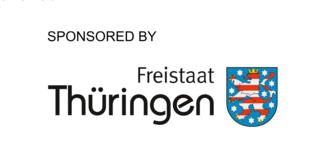

Project title:
Gruenland H2 - Green hydrogen from the countryside - transformation of the energy supply in the Mühlhausen region in cooperation with the agricultural sector
Funding institution:
Free State of Thuringia
Project duration:
01.04.2022 - 30.06.2023
Head of the project at Bauhaus-Universität Weimar:
Prof. Dr. Mark Jentsch
Project partners:
Institut für Biogas. Kreislaufwirtschaft und Energie, Thüringer Energie- und GreenTech-Agentur, Agrargenossenschaft Großengottern e. G., Landwirtschaft Körner GmbH & Co. Betriebs KG
Team member involved in the project:
Dipl.-Ing. Angela Clinkscales M. Sc.
Project Description
In accordance with the requirements of the Climate Protection Act, Germany aims to achieve net greenhouse gas neutrality by 2045. The objective is to accomplish this goal through electrification to the greatest possible extent, with a simultaneous expansion of renewable energy generation. Hydrogen is seen as an important building block in this context for chemically storing renewable electricity via electrolysis. This is especially true for otherwise "surplus" electricity from fluctuating generation plants for which there is no direct use. However, ramping up the (green) hydrogen economy requires significant conversions, primarily affecting industry and the mobility sector, as well as large quantities of hydrogen. It can be assumed that "surplus" electricity alone will not be sufficient to meet the demand. With this in mind, in addition to importing from abroad and going beyond the use of electricity for electrolysis, it is important to consider alternative domestic renewable generation pathways. Steam reforming of biogas offers one such option.
Today, biogas plants contribute to the plannable and flexible generation of electricity. However, considerable amounts of energy remain unused if the thermal energy generated in this process cannot be used or cannot be used sufficiently. The production of hydrogen from biogas via steam reforming increases the usable energy content and also offers the advantage that hydrogen production from electrolysis can be supplemented with electricity from local wind and PV plants in a flexible and controllable manner.
In the context of the Grünland H2 project, the technical possibilities for steam reforming of biogas were investigated at two existing biogas plants in Thuringia. Furthermore, concepts for the local use of the generated hydrogen in public transport and municipal services (street cleaning, waste disposal) were presented. In addition, the basic potential of this approach and the possibilities of future integration of biogas plants into larger hydrogen supply networks in the region around the city of Mühlhausen were evaluated. The results of the study show that hydrogen production from biogas is technically feasible and can play a role in the market ramp-up of the hydrogen economy, but is not competitive with the upgrading of biogas to biomethane under current market conditions.
Published work
Clinkscales A, Jentsch MF, Scholwin F (2022)
Untersuchung zu den Möglichkeiten der regionalen Wasserstofferzeugung aus Biogas am Beispiel von zwei Biogasanlagen in Thüringen, 29. REGWA Energiesymposium, Stralsund, 09-11 November 2022, 61-69. → view paper
